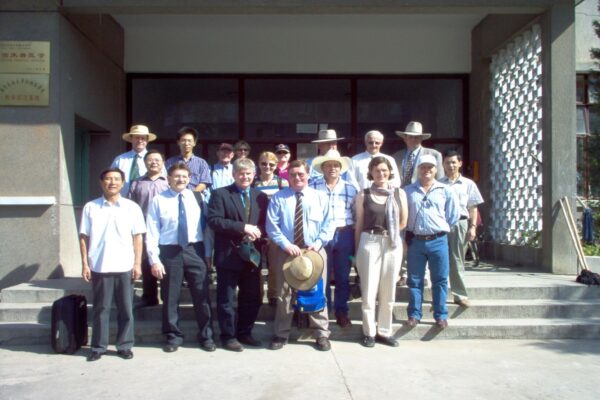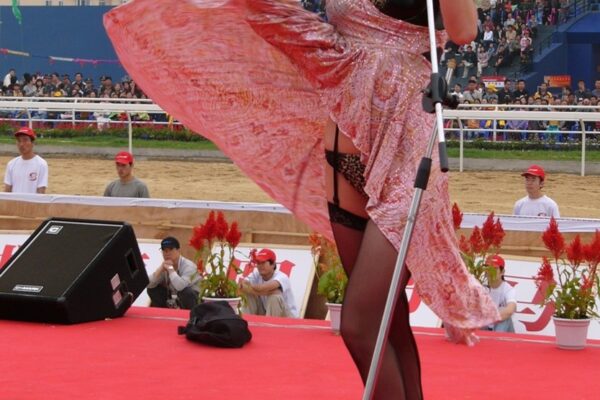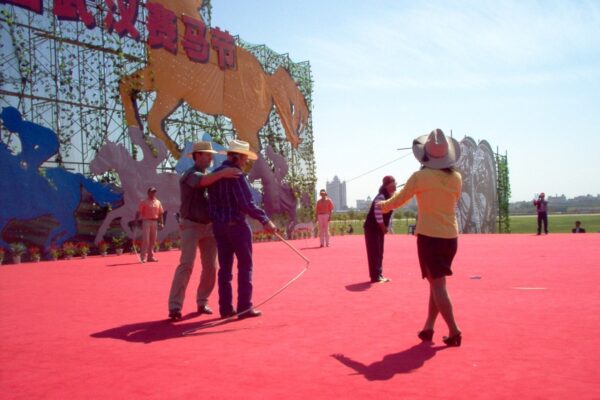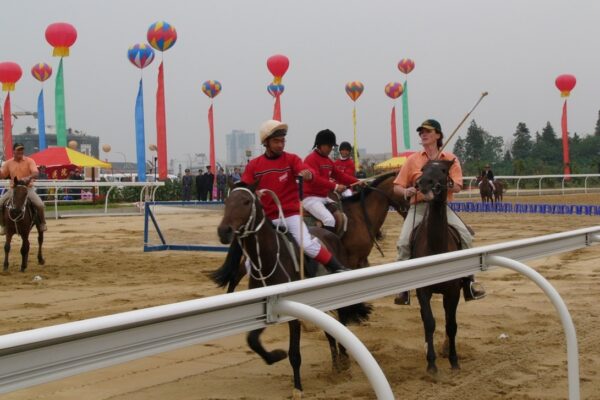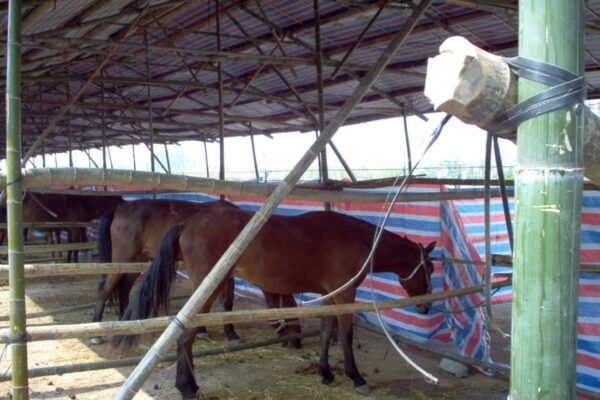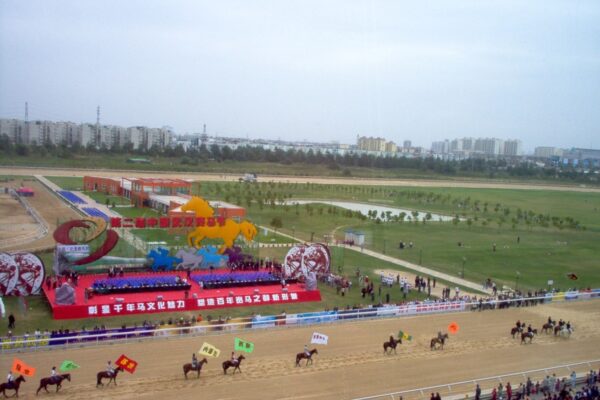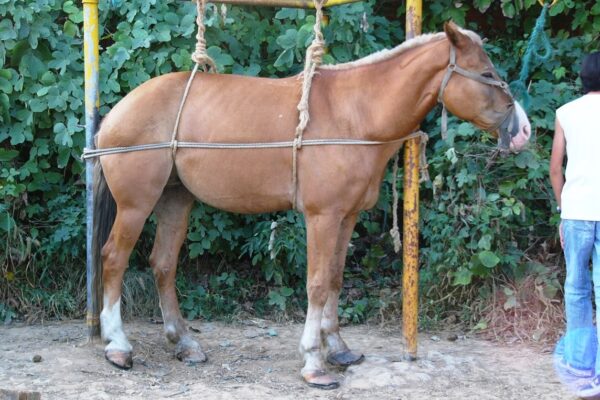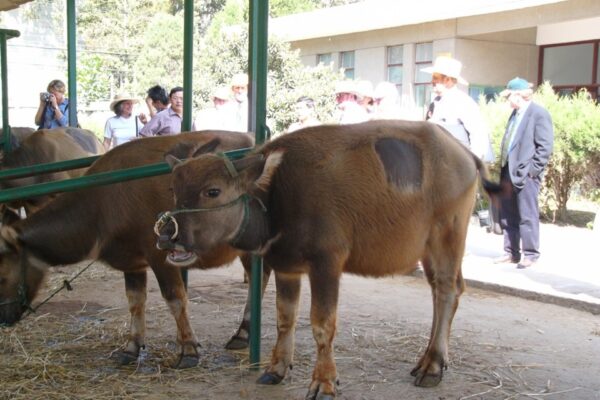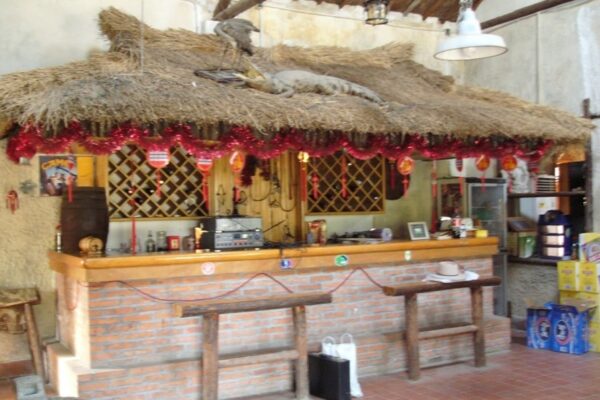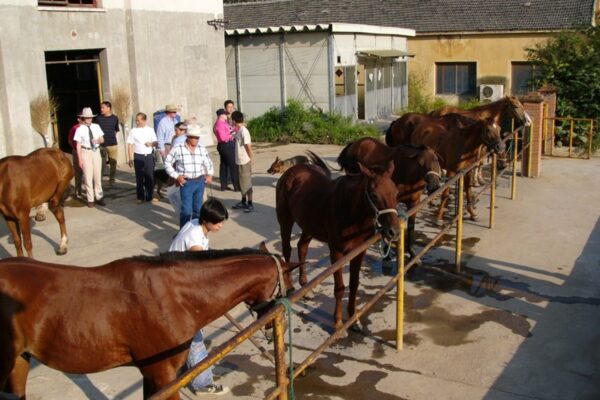Thoroughbreds: Galileo proves he’s the brightest star in the stallion galaxy
See also:
Foreword
Tony Arrold has captured the very essence of the overarching polemical dilemma in Australian Thoroughbred Breeding and Racing: Why are we not breeding top class middle (classic) distance and staying racehorses? I’ll leave the explanation(s) to him in his seminal treatise as follows. It’s a very perspicacious retrospective analysis. I wonder what an equally insightful prospective study might reveal? Based on the statistical evidence posited by Tony (Arrold) it appears ‘Galileo’ is that very rare exception; a stallion who appears to improve with advancing age?
‘The Wizard of Dormello’ Federico Tesio famously said that; “the thoroughbred exists because its selection has depended, not on experts, technicians, or zoologists, but on a piece of wood: the winning post of the Epsom Derby.”
See also: https://theownerbreeder.com/columns/derby-remains-race-that-matters-despite-distance/
See also: https://sconevetdynasty.com.au/sire-premiership-tables-2014-2015-to-2019-2020-as-at-13-04-2020/
Despite a poor record in Australia, Galileo has proved himself the world’s best stallion.
TURF WRITER
4:13PM JULY 5, 2020
If there were any doubts as to who is the world’s best stallion, Coolmore Stud’s colossus Galileo removed them in a record-breaking dual classic triumph on historic Epsom Downs racetrack, England, on the weekend.
Galileo had his clan in cruising mode on the day, with Serpentine winning the Group I Derby Stakes (2400m) by 5½ lengths in a bold frontrunning exhibition, while Love slammed seven other three-year-old fillies by nine lengths in the Group I English Oaks (2400m).
While adding to the extraordinary ownership by Coolmore interests in both classics – and this year with both winners also bred by the premier Irish stud — the Derby-Oaks double provided the eighth success in each for trainer Aidan O’Brien, the master of Ballydoyle.
The Irish whiz now has the Derby’s trainer record outright, having shared it with four others prior to Serpentine’s win. But he is still some way off the Oaks record, which is with Robert Robson who prepared 13 winners from 1802 to 1825, inclusive.
Himself the Derby winner of 2001, Galileo (Sadler’s Wells-Urban Sea, by Miswaki) now stands alone as the most successful stallion of the Derby’s 240-year history, with five sons on the honour roll. He previously shared it with five others including his former, now deceased Coolmore Stud colleague Montjeu (by Sadler’s Wells).
Oaks heroine Love, the 11-10 favourite after her four-length win in the Group I English 1000 Guineas (1600m) last month, is the fourth in the fillies’ classic for Galileo and she is now Ballydoyle’s pin-up girl for Europe’s premier race, the Group I Prix de l’Arc de Triomphe (2400m) in France in October.
Serpentine, a 25-1 chance and only added to the Derby field after a nine-length win in a maiden event over 2000m at the Curragh, Ireland, seven days beforehand, is the 317th stakeswinner for Galileo and his 86th individual Group I winner.
Two global breeding databases are at odds over the world’s stallion record for Group I winners with one behind Galileo’s 86, the other with Coolmore’s former champion Danehill with 89.
But since Galileo, though getting on at age 22, has at least four more racing crops ahead (two-year-olds, yearlings, foals and mares in-foal to him), that record will be beyond dispute sooner rather than later as Galileo charges towards his 12th European sires’ crown.
Whereas Danehill was a supreme force as a dual hemisphere stallion, including a record nine sires’ premiership in Australia, it must be said Galileo was a disappointment if not a failure in his brief time as a shuttle stallion with his overall record sullied by five seasons on Coolmore’s NSW Hunter Valley operation in Australia.
Galileo’s Australian record lists just 19 stakeswinners, five of which won at Group I level. That’s 6 per cent of both categories of his overall statistics.
The reasons for these radically unbalanced results are most certainly found beyond the gates of Coolmore Stud, since the stud’s mating procedures here mirror the high professional standards set at its Irish headquarters. And with an average 113 foals per season arriving from his five Australian seasons, 2002 to 2006, Galileo was not short of quality and quantity of his mated mares.
Much of the negatives sit with how Galileo’s progeny were handled when arriving as immature two-year-olds at racing stables, with many pushed along too early to fit the Australian regime of a concentration of speed aimed at a lucrative, almost obscene, juvenile prizemoney calendar.
The best conceived in Australia by Galileo was the filly Igugu. She was shipped off to South Africa, was spared racing at two years but rewarded connections’ patience by landing four Group Is at three and four, along with Horse of the Year honours.
The burnout effect of the Australian market’s lust for two-year-old speed has played out with great clarity over the past 10 to 15 years to the extent that the home-bred stamina horse has plummeted to abysmal depths as northern hemisphere imports and New Zealand-breds dominate the distance features.
The thoroughbred industry need not be reminded that Vow and Declare last year was the first Australian-bred winner of the Group I Melbourne Cup (3200m) in 10 years. But the raid by imports on stakes races beyond 1600m and for horses aged three years and upwards, roars onwards.
In the current season, from August 1, 2019 to June 30, 2020, 85 stakes races for this age category in this distance range, have been run in Victoria, NSW and Queensland, the three mainland states where the majority of imported horses are trained.
Stayers bred in Ireland won 20 (23.5 per cent), New Zealand 16 (18.8 per cent), Great Britain nine (10.6 per cent), Japan and France four each (4.7 per cent) with Germany and South Africa the origins of three stakeswinners.
This leaves Australian-breds accounting for 29 stakes wins (34 per cent) including a measly four of 14 Group I events for the age-group and distance range.
Irish-breds claimed six of the 14 Group Is and, ironically, they included the Galileo duo Cape Of Good Hope (Caulfield Stakes) and Magic Wand (Mackinnon Stakes) – the former from a Danehill mare, the latter from a mare by the Danehill horse Danehill Dancer.
Like Galileo’s Group I winners Alice Springs, Circus Maximus, Minding and last year’s runaway Irish Derby winner Sovereign, Serpentine was also produced by a daughter of Danehill Dancer, Remember When. This English Oaks runner-up is the dam also of four other stakeswinners, an unraced two-year-old colt and a yearling colt – all by Galileo.
Serpentine’s year-older brother Yulong Captain races in Victoria for Yulong Investments, winning three of 12 starts to date, including wins over 2400m at Swan Hill and Sandown at his past two starts.
Remember When’s mother Lagrion, by dual Group I winner Diesis, is among the rare broodmare gems to have produced three or more Group I winners – her seven winning foals including Dylan Thomas, Queen’s Logic and Homecoming Queen.
Dylan Thomas, son of Danehill, was the standout performer with six Group Is in Ireland, England and France and notably the 2006 Irish Derby and the King George-Arc double of 2007.
Brian Russell writes (01/12/2020):
Cup Quinella showcased Galileo’s awesome transmission powers
This year’s Melbourne Cup quinella showcased the awesome transmission powers of the Coolmore Stud, Ireland located world super sire Galileo (Sadler’s Wells – Urban Sea, by Miswaki (Mr Prospector). He helped make the pedigrees of the first two home in $7.5 million event as the paternal grand sire of the winner, the Teofilo (Ire) 8yo gelding Twilight Payment (Ire), and as the sire himself of second placed Tiger Moth (Ire).
Galileo also appeared in the pedigrees of four other contestants in the Cup, for one being the sire of ill-fated highweight Anthony Van Dyck (Ire), the winner in 2019 of the English Derby. The product of a mare by reverse shuttled Aussie Exceed and Excel (by Danehill (USA), the Aidan O’Brien trained stallion broke down in running and was subsequently put down.
Two of the Cup runners, Master of Reality (Ire) and Finche (GB) (dam by Woodman (USA), are sons of Galileo’s unbeaten giant of racing Frankel (dam by Danehill). In addition he provided the dams of two of the others, the Declaration of War (USA) 4yo gelding Warning and the Dansili (GB) (Danehill (USA) 8yo gelding Stratum Albion (GB).
All these runners carrying the Galileo influence were Imports, one exception being the Toorak Thoroughbreds, South Australia bred Warning. He is out of Livia (19 starts, 2 wins, $64,130), a mare bred by C E White, Vic when Galileo shuttled five times, 2002 – 2006, to Coolmore Hunter Valley for southern hemisphere use.
The result of those visits was about 560 foals out of which came about 300 winners Australia (23 SWs), New Zealand, South Africa, Hong Kong, Macau, Singapore and Malasyia, It is difficult to pinpoint the Galileo Australian statistics as among his runners here have been about a 100 bred in Europe, including 77 winners (18 SWs,16 SP),14 others placed and 21 unplaced- most of the latter had very few runs.
Between them all his Australian runners have won 275 races and $47milliion.
All told, taking in both his Ireland and Australian sired progeny, Galileo has supplied 1540 winners (68.2%) of over 4000 races and a massive $337million. His 331 stakes winners include a world record 89 Group One winners, four them sired in Australia.
The Champion Great Britain – Ireland sire for 12 years, including 2020, the still active Galileo has lived up to the eulogy of Tony Morris an iconic racing journalist with the English Racing Post, in 2013:
“Galileo is truly a phenomenon, a ruler of the world himself and universally acknowledged as the best sire on the planet”.
Mouth-watering honour board
Galileo’s mouth-watering honour board is headed by an armada of classic winners, including World Champion Frankel (2,000 Guineas), Australia (Derby), Ruler Of The World (Derby), Magician (Irish 2,000 Guineas), Gleneagles (2,000 Guineas, Irish 2,000 Guineas), The Gurkha (French 2,000 Guineas), Churchill (2,000 Guineas, Irish 2,000 Guineas), Anthony Van Dyck (Derby), Serpentine (Derby), Minding (Epsom Oaks, 1,000 Guineas), Winter (1,000 Guineas, Irish 1,000 Guineas), Kew Gardens (St Leger), Was (Epsom Oaks), Roderic O’Connor (Irish 2,000 Guineas), Treasure Beach (Irish Derby), Capri (Irish Derby, St Leger), Misty For Me (Irish 1,000 Guineas), Golden Lilac (French 1,000 Guineas, French Oaks), Flag Of Honour (Irish St Leger), Sovereign (Irish Derby), Soldier Of Fortune (Irish Derby), Order Of St George (Irish St Leger x2), Cape Blanco (Irish Derby), Sixties Icon (St Leger), Nightime (1,000 Guineas), Hermosa (1,000 Guineas, Irish 1,000 Guineas), New Approach (Derby), Peaceful (Irish 1,000 Guineas) Forever Together (Epsom Oaks), Search For A Song (Irish St Leger x2), and Love (1,000 Guineas, Epsom Oaks) .
Others of consequence include Highland Reel (dam an exported Danehill (USA) Aussie) (Ascot King George & Queen Elizabeth, Breeders Cup Turf, Hong Kong Vase twice, third in Australia in the Cox Plate), Magical (Ascot Champion Stakes, British Champion Fillies and Mares S, Irish Champion S – twice, Tattersalls Gold Cup – twice). Waldgeist (Prix de L’Arc de Triomphe, 2nd French Derby), Rhodendron) (Newmarket Fillies Mile, 2nd The One Thousand Guineas, Oaks), Noble Mission (Ascot Champion S, Curragh Tattersalls Gold Cup), Found (Prix de l’Arc de Triomphe, Breeders Cup), Circus Maximus (Royal Ascot St James’s Palace S, Queen Anne S, 2nd Breeders’ Cup Mile), Japan (York International , Grand Prix De Paris, 2nd Oaks). Rip Van Winkle (York International , Goodwood Sussex, 4th The Derby), Nathaniel (Ascot King George V1 & Queen Elizabeth, Sandown Eclipse S), Teofilo (Newmarket 2yo Dewhurst S, Curragh National S), Happily (Curragh Moyglare S, 3rd The One Thousand Guineas, Irish One Thousand Guineas), Adelaide (Cox Plate, USA Secretariat S, 2nd Belmont Derby), The United States (ATC Ranvet S, Moonee Valley Cup) and Red Rocks (Breeders’ Cup Turf, Belmont Man OWar S, 3rd The St Leger).
Purple Moon (Ire) is another deserved by a niche on the honour board despite the fact he did not win above Listed, but he finished second in the 2007 Melbourne Cup and afterwards in the Hong Kong Vase and Yorkshire Cup and third in England in the Ascot Gold Cup and Goodwood Cup.
Galilee winners also include the Australian sired Linton (won Brisbane’s Stradbroke), Niwot (Sydney Cup). Sousa (NZ) (ATC Spring Champion S), Discorsi (VRC Gibson Carmichael S), Galizani (City Tatt’s Gold Cup), Gallant Tess (ATC Chelmsford S, Breeders’ Classic), Igugu (4 Group 1s in South Africa), Jacquinot Bay (Canberra Cup), Luvuleo (STC WJ McKell Cup), Personify (SAJC Queen Adelaide S), Reprisal (Hobart Guineas), Saint Minerva (QTC Grand Prix), Sea Galleon (ATC Christmas Cup), Sertorius (MRC Zipping Classic, Easter Cup, Bendigo Cup), View The Stars (WATC JC Roberts S), Tanby (Adelaide Cup) and Mahbooba ( South African Golden Slipper).
The current leading European broodmare sire, Galileo is also transmitting excellence through his daughters, the source to date world wide of over 1600 winners of 4300 races and over $200million. Contributors include 187 stakes winners, 99 at Group level, 33 at Group1.
Australian bred Group1 winners out of Galileo mares are The Autumn Sun (by Redoute’s Choice, MRC Caulfield Guineas, ATC Golden Rose, Randwick Guineas, Rosehill Guineas, BRC JJ Atkins), Invincibella (I Am Invincible, Qld Tatt’s Tiara), Unforgotten (Fastnet Rock, ATC Australian Oaks), Tofane (Ocean Park, ATC All Aged S), Hall of Fame (WRC Levin Classic), Leicester (Wanted, South Australian Derby), Warning (Declaration of War (USA) (Victoria Derby), Winning Ways (Declaration of War, Queensland Oaks), Age of Fire (Fastnet Rock, WRC Levin Classic), Personal (Fastnet Rock, Victoria Oaks) and Magicool (Fastnet Rock, Queensland Derby).
Six of these performers, Invincibella, Tofane, Hall of Fame, Warning, Age of Fire and Personal, were all produced by Australian sired daughters of Galileo.
